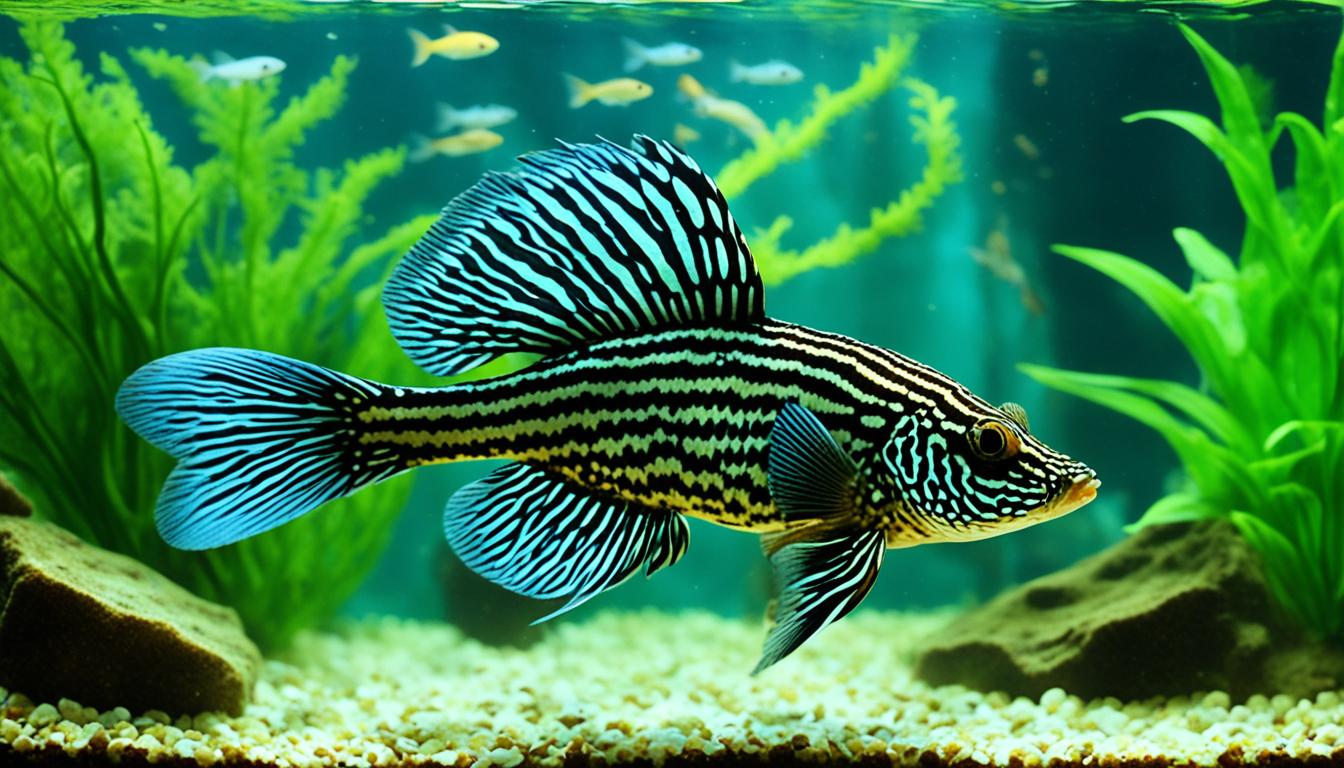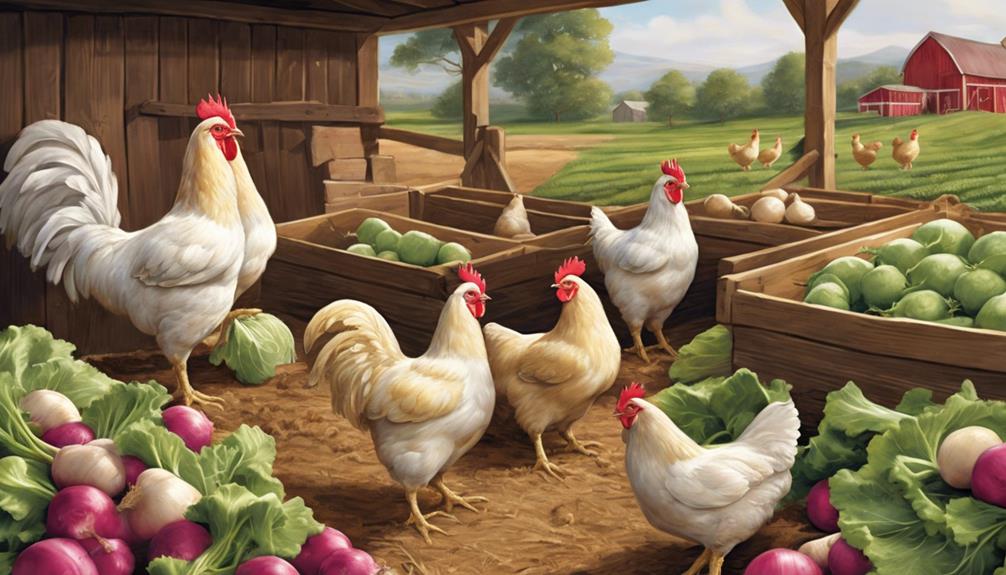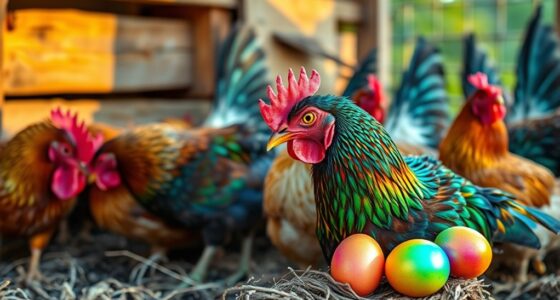Feeding elderberries to chickens can supply vital nutrients such as vitamins C, A, calcium, and fiber. They are packed with antioxidants, enhancing the immune system and promoting better health. You can offer them fresh, dried, or in syrup form, but make sure to use moderation to avoid any adverse effects. Monitor their intake and behavior, and consider cooking the elderberries for safer consumption.
Remember, understanding the benefits and risks is key to keeping your chickens healthy and happy.
Key Takeaways
- Offer elderberries in fresh, dried, or syrup form for safe consumption.
- Feed elderberries in moderation to prevent toxicity risks.
- Monitor chicken's reactions to elderberries for adverse effects.
- Cook elderberries at 300°F for 15 minutes to neutralize toxins.
- Limit access to elderberry bushes and trees to control intake.
Benefits of Feeding Elderberries to Chickens
When feeding elderberries to chickens, we provide essential nutrients like vitamin C, A, calcium, and fiber that support their overall health and well-being.
Elderberries are rich in antioxidants, which play a crucial role in boosting the chickens' immune system and combating inflammation.
By incorporating elderberries into their diet as treats, we can enhance feather health and contribute to their overall well-being.
Additionally, elderberries can serve as a beneficial supplement to address specific health issues in chickens, such as chronic diseases or respiratory problems.
Elderberry syrup offers a convenient way to administer precise dosages of elderberries to the flock, ensuring they receive the full spectrum of benefits.
Safe Ways to Feed Elderberries

To ensure the safe and effective feeding of elderberries to chickens, it is important to consider the various forms in which elderberries can be offered and the proper methods for their administration. Elderberries can be presented in fresh, dried, or syrup form, with each type offering unique benefits. Here is a table summarizing the safe ways to feed elderberries to chickens:
| Form | Description |
|---|---|
| Fresh | Can be fed raw as treats without cooking, rich in nutrients. |
| Dried | Should be heated to remove toxins before feeding. |
| Syrup | Recommended for precise dosing, can be added to the flock's water. |
Feeding elderberries to chickens should be done in moderation to prevent any potential negative effects. These berries can serve as a valuable supplement to enhance immunity and address specific health concerns in the flock. By following these safe feeding practices, chickens can benefit from the nutritional properties of elderberries while ensuring their well-being is maintained.
Elderberry Quantity Guidelines for Chickens
Implementing careful monitoring of elderberry consumption is crucial when establishing quantity guidelines for chickens to prevent potential overeating risks and ensure their overall well-being.
Offer elderberries to chickens in moderation, providing around 2/3 cup at a time, once per week. It's essential to make sure that chickens continue to consume their balanced poultry feed alongside elderberries to maintain a well-rounded diet.
To control the amount of elderberries consumed, limit the chickens' access to elderberry bushes or trees. Monitoring the chickens for any changes in their poop or behavior when introducing elderberries into their diet is vital.
If any adverse effects are observed or if chickens show signs of overeating, such as diarrhea or unusual behavior, consider removing elderberry bushes or trees to prevent potential health risks.
Following these quantity guidelines and closely observing the chickens' response to elderberries will help maintain their health and well-being.
Risks of Elderberries for Chickens

Raw elderberries present significant toxicity risks to chickens due to the presence of cyanogenic glycosides, which can be harmful if consumed excessively. Unripe elderberries contain higher levels of these toxins, potentially leading to fatal consequences if ingested by chickens.
It's crucial to note that not only the berries but also the leaves, flowers, and stems of the elderberry plant contain toxic compounds that are unsafe for chicken consumption. To mitigate these risks, cooking elderberries at 300°F for a minimum of 15 minutes can help neutralize the toxins, making them safer for chickens to eat.
However, even with this precaution, moderation remains essential when incorporating elderberries into a chicken's diet. By being mindful of the potential dangers associated with elderberries and ensuring that these fruits are provided in controlled amounts, chicken owners can help safeguard their flock against poisoning incidents related to cyanogenic glycosides present in elderberries.
Incorporating Elderberries Into Chicken Diet

After discussing the risks associated with elderberries for chickens, it's important to consider how to safely incorporate these nutritious treats into a chicken's diet. Cooked elderberries are recommended for chickens as the cooking process helps neutralize toxins present in raw elderberries, making them safer for consumption.
When feeding elderberries to chickens, it's crucial to do so in moderation to prevent poisoning risks. These berries can offer essential nutrients such as vitamins, minerals, and antioxidants that contribute to overall chicken health.
Monitoring chickens for adverse effects after introducing elderberries into their diet is essential. By observing any negative reactions, such as digestive issues or changes in behavior, adjustments can be made to the feeding practices.
Frequently Asked Questions
Can You Feed Chickens Elderberry?
Yes, we can feed chickens elderberries. Cooking elderberries makes them safe for consumption by eliminating toxins.
It's vital to avoid feeding chickens elderberry leaves, stems, and roots, as these parts are poisonous to them. Elderberries offer antioxidants, vitamins, and minerals beneficial for chicken health.
It's advised to introduce elderberries gradually into their diet to monitor tolerance levels and prevent overconsumption, ensuring their well-being.
Can Chickens Have Elderberry Pulp?
Yes, chickens can have elderberry pulp. It's important to introduce it gradually to monitor for adverse reactions and prevent overconsumption. Ensure the elderberry pulp is free from harmful additives like sugar or salt.
Elderberry pulp is a nutritious treat for chickens, rich in antioxidants and beneficial nutrients. Limit the amount of elderberry pulp fed to chickens to maintain a balanced diet and overall health.
Will Chickens Avoid Poisonous Plants?
Yes, chickens don't instinctively avoid poisonous plants. They may consume toxic vegetation due to curiosity or hunger.
Training chickens to steer clear of harmful plants is feasible but requires effort. To prevent ingestion of toxic flora, a diverse and balanced diet is crucial.
Active supervision and proactive measures play a vital role in safeguarding chickens from consuming harmful vegetation.
Can Animals Eat Raw Elderberries?
Animals shouldn't eat raw elderberries due to their cyanogenic glycosides, which are toxic compounds. Cooking elderberries at 300°F for at least 15 minutes effectively neutralizes these toxins, ensuring their safety for consumption.
For animals, including chickens, feeding them cooked elderberries is the recommended practice to avoid poisoning risks.
It's crucial to be cautious as elderberry leaves, flowers, and stems also contain toxins that can be harmful to animals if ingested.
Are Elderberries and Roses Both Safe for Chickens to Eat?
Yes, chickens can safely eat elderberries and roses. It’s crucial to safely introduce feeding chickens roses to avoid any harm. These natural treats provide essential nutrients and antioxidants for the chickens, promoting their overall health and well-being. However, offering them in moderation is key to a balanced diet.
Conclusion
In conclusion, feeding elderberries to chickens can provide numerous health benefits and enhance their diet. By following safe feeding practices and incorporating elderberries in moderation, chickens can enjoy a tasty and nutritious treat.
However, it's important to be cautious of the risks associated with overfeeding elderberries to prevent any potential harm to your flock.
Overall, elderberries can be a valuable addition to a chicken's diet when used responsibly.









